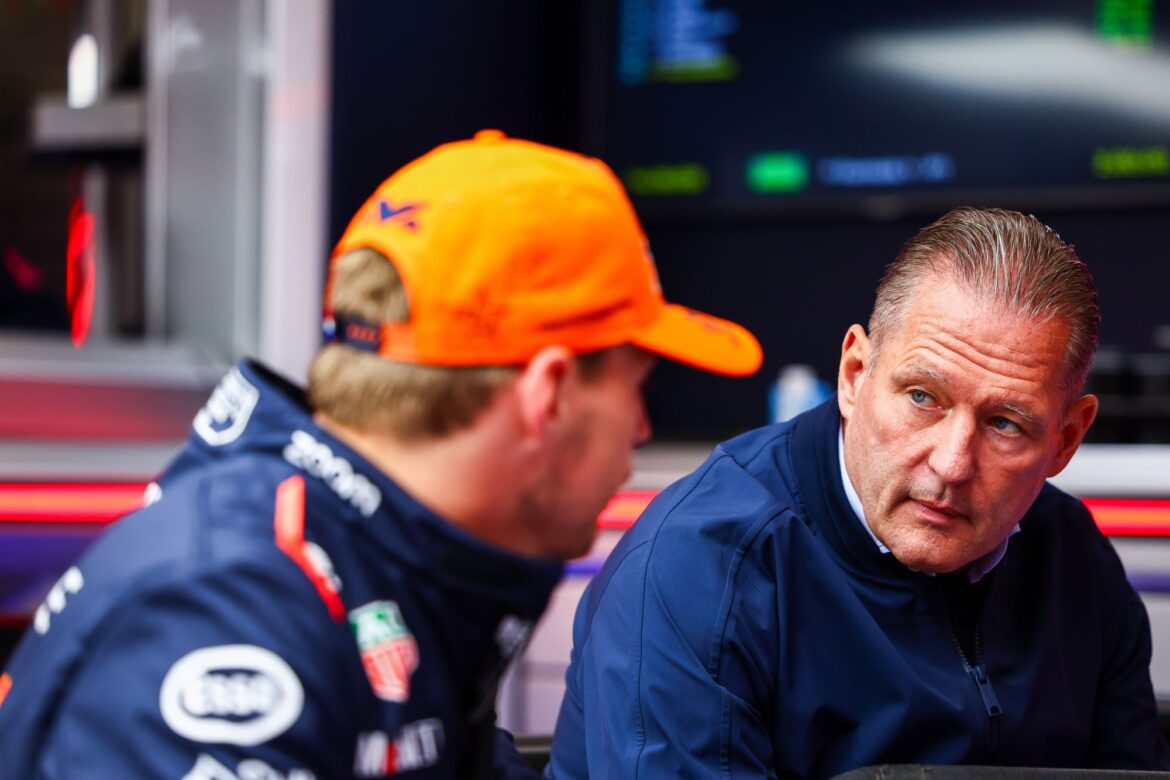The Dynamics Behind Christian Horner’s Departure from Red Bull Racing
In the world of Formula 1, team dynamics and internal relationships are often as crucial as the performance on the track. Recently, there has been significant discussion surrounding the departure of Christian Horner from his position as team principal at Red Bull Racing. Martin Brundle, a former F1 driver and current commentator for Sky Sports F1, has provided insights into the factors that may have contributed to this shift. While Brundle highlights the influence of various parties, he emphasizes that the ultimate decision came from the higher-ups in Austria.
Understanding the Context
To fully appreciate the situation, it’s essential to consider the relationships and tensions that have developed over time within the Red Bull organization. Brundle, who has engaged in conversations with key figures including Horner, Jos Verstappen, Red Bull CEO Oliver Mintzlaff, and advisor Helmut Marko, has a unique perspective on the behind-the-scenes dynamics. His insights suggest a complex interplay of motivations that led to Horner’s exit.
The Impact of Jos Verstappen
One of the pivotal figures in this narrative is Jos Verstappen, the father of reigning world champion Max Verstappen. Brundle acknowledges that Jos has been a vocal presence over the past year, often expressing his opinions on team decisions and Horner’s leadership. While Jos’s statements may have raised eyebrows and caused friction, Brundle is careful to clarify that neither Jos nor Max should bear the brunt of the blame for Horner’s departure.
Brundle emphasizes, “This was a decision from Austria, not the Verstappens.” He elaborates that while Jos has been outspoken, it is essential to recognize that his influence, albeit significant, was not the sole factor leading to Horner’s exit. Jos’s criticisms and suggestions regarding the team’s direction certainly stirred the pot, but the final call rested with Red Bull’s upper management.
Christian Horner’s Leadership Style
Christian Horner has been synonymous with Red Bull Racing for nearly two decades. His leadership style has been characterized by a hands-on approach, where he maintained control over various aspects of team operations, including driver management, budget caps, and sponsorship deals. Brundle describes Horner’s perspective on these responsibilities: “Christian didn’t want to relinquish control because he viewed everything as interconnected—the drivers, the budget cap, the sponsors, and staffing. It was a complete package he wished to keep under his realm.”
However, this desire for comprehensive control may have clashed with the company’s evolving vision. As Red Bull aimed to refocus its strategy and regain authority over commercial areas that had previously been centralized under Horner’s guidance, tensions were bound to arise. The shifting landscape within the organization was likely a contributing factor to the decision to part ways with Horner.
The Role of Max Verstappen
With Max Verstappen being the star driver of the team and a significant figure in the F1 landscape, his position in this unfolding drama cannot be understated. Brundle speculates on the extent to which Max could have influenced the outcome regarding Horner’s situation. “Presumably, Max could have intervened if he desired to. But either he chose not to, or he was unable to. I believe he opted not to intervene,” Brundle posits.
This raises questions about Verstappen’s priorities and his vision for the team moving forward. As a dominant force in F1, Max has a vested interest in ensuring the team remains competitive, but the balance of power within the team also matters. The departure of Horner might signal a shift that aligns with Max’s aspirations for Red Bull Racing, placing greater emphasis on the collective identity of the team rather than one individual.
Shifting Focus at Red Bull
Brundle suggests that Red Bull may have sensed a need to recalibrate its focus, potentially feeling that the narrative surrounding the team had become too centered on Horner rather than the brand itself. This perception could have played a crucial role in the decision-making process. “Perhaps they wanted to change the spotlight. I can only imagine Christian is at home watching this unfold for the first time in twenty years without being in the paddock, and it must be quite disheartening for him,” Brundle reflects.
The internal shifts within Red Bull Racing are indicative of larger trends in Formula 1, where teams are increasingly wary of the narratives they project. The sport has evolved dramatically in recent years, with a greater emphasis on branding and commercial viability. As such, the team is likely striving to cultivate a collective identity that resonates with fans and sponsors alike.
Conclusion
The departure of Christian Horner from Red Bull Racing marks a significant chapter in the team’s history. As the organization navigates this transition, the interplay of personalities, ambitions, and strategic interests will undoubtedly shape its future endeavors in Formula 1. The insights from Martin Brundle offer a glimpse into the complexities at play, revealing how the dynamics between key individuals and the corporate hierarchy have influenced this pivotal decision. As Red Bull Racing moves forward, the impact of these changes will be closely monitored by fans and analysts alike, eager to see how the team adapts to its new direction.
